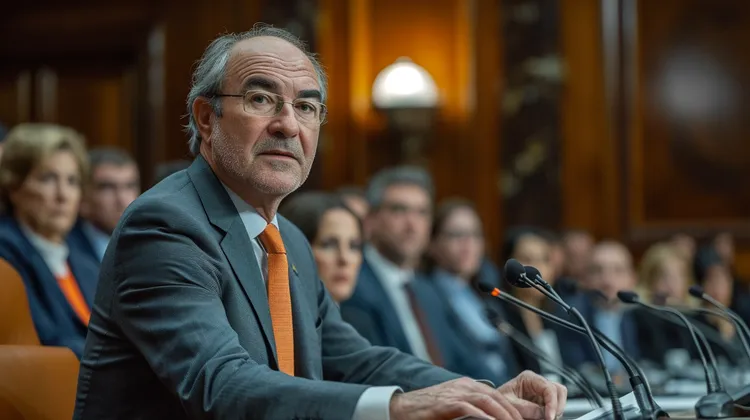In a landmark decision that reverberated through the financial and cryptocurrency worlds, Securities and Exchange Commission (SEC) Chairman Gary Gensler cast a decisive vote to approve the first Bitcoin Exchange-Traded Funds (ETFs). This move marked a significant shift in the regulatory landscape for digital assets and indicated a step toward mainstream acceptance of cryptocurrencies. Despite facing considerable public criticism, Gensler’s decision could potentially pave the way for a new era of investment opportunities for both institutional and retail investors.
From the moment he was sworn in as Chairman of the SEC, Gensler was seen as a figure who could bring about change. With a background as a former Goldman Sachs banker and a stint as the Chairman of the Commodity Futures Trading Commission (CFTC), Gensler had ample experience in both traditional finance and regulatory circles. Added to this was his academic involvement at MIT, where he taught classes on blockchain and digital currencies, suggesting a nuanced understanding of the technology behind cryptocurrencies.
The decision to approve Bitcoin ETFs did not come easy or without significant debate. For years, the SEC had been hesitant to sanction such products due to concerns over market volatility, liquidity, custody, and potential market manipulation. Critics of the push for Bitcoin ETFs argued that the cryptocurrency market was too immature and fraught with risks for the average investor, and that the SEC’s primary role should be to protect consumers from these very kinds of speculative investments.
Despite loud objections from consumer watchdogs and skepticism from traditional investors, Gensler’s stance on the issue revealed a more progressive outlook on digital assets. He acknowledged the growing interest and involvement in crypto markets by a broad spectrum of the investing public, signaling an acceptance that the SEC could no longer stand on the sidelines.
Gensler was careful to tread a middle path, advocating for a regulated and structured approach to crypto ETFs. His position was that ETFs, subject to strict SEC oversight, could offer investors easier and safer access to Bitcoin without the complexities of direct ownership, such as wallet security and private key management. This was seen as a compromise that addressed some of the concerns around investor protection.
When the first Bitcoin futures-based ETFs were approved, the crypto community saw it as an endorsement of the asset class’s investment legitimacy. This was a major departure from the past when such initiatives were met with flat rejections by the regulatory body. The approval was a significant step toward potentially launching spot Bitcoin ETFs in the future, something that investors have been eagerly anticipating.
Despite the breakthrough, Gensler continued to stress the need for investor protection. He called for enhanced regulatory frameworks to govern cryptocurrencies and related investment vehicles, focusing on anti-fraud and anti-manipulation practices. His stance served to reassure both critics and proponents that the entry of Bitcoin into the ETF space would not be a regulatory free-for-all.
The market response to the approval of Bitcoin ETFs was predictably exuberant. Prices of Bitcoin surged as investors looked forward to the increased accessibility and liquidity that ETFs would provide. For crypto advocates, Gensler’s decision was seen as a validation of their belief in the potential for digital currencies to disrupt the financial industry.
Yet, not everyone was persuaded by Gensler’s arguments or the SEC’s actions. Some industry observers remained critical, pointing out that the underlying issues plaguing cryptocurrencies, like high volatility and questions around valuation, had not been fully addressed. They feared that inexperienced investors could be drawn into a volatile market they did not fully understand, potentially leading to significant losses.
There was criticism that the SEC-approved ETFs were based on Bitcoin futures rather than the cryptocurrency itself, which some purists argued wasn’t a true representation of the market dynamics. This distinction did little to quell the concerns of those wary about the integration of crypto into mainstream financial products.
In the midst of this polarized discourse, Gensler stood firm in his vision for a regulated pathway forward for cryptocurrency integration. He often reasserted his belief that innovation must be balanced with the law and that the SEC’s rules are designed to ensure investor protection and fair markets.
Gensler’s vote to approve Bitcoin ETFs will likely be looked back upon as a watershed moment in the history of cryptocurrency regulation. It remains to be seen how the market will adapt to these new investment products and whether the SEC’s regulatory oversight will evolve alongside the rapidly changing crypto landscape. For now, Gary Gensler’s decision has undoubtedly moved the needle, opening up new debates and possibilities for Bitcoin and the broader world of digital assets.



